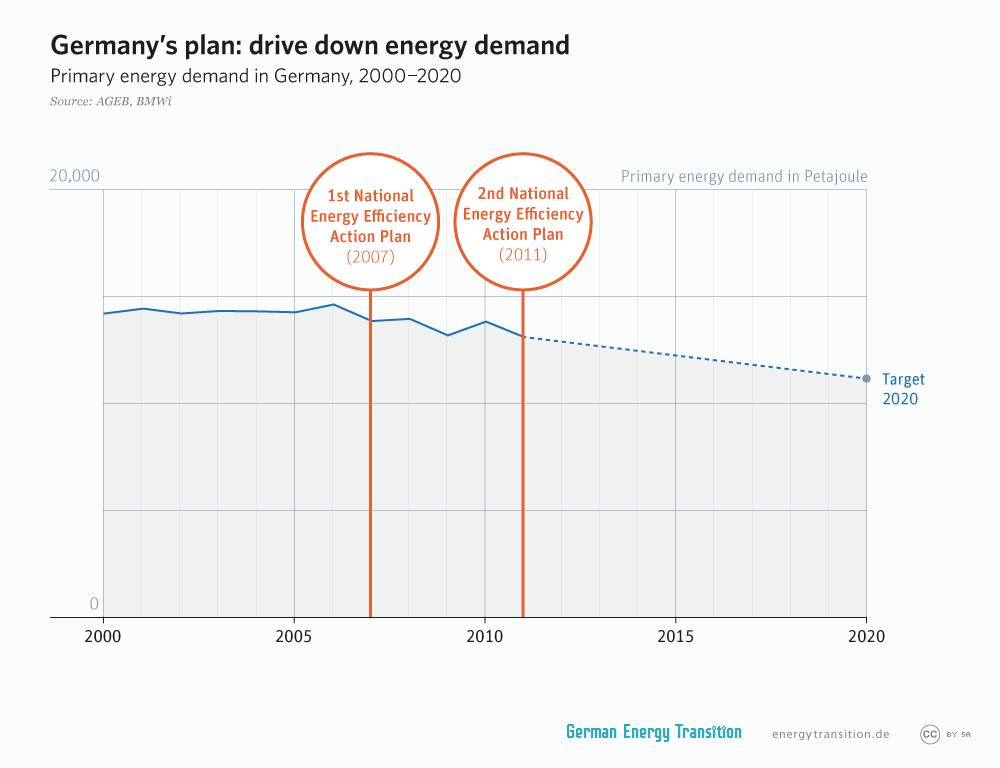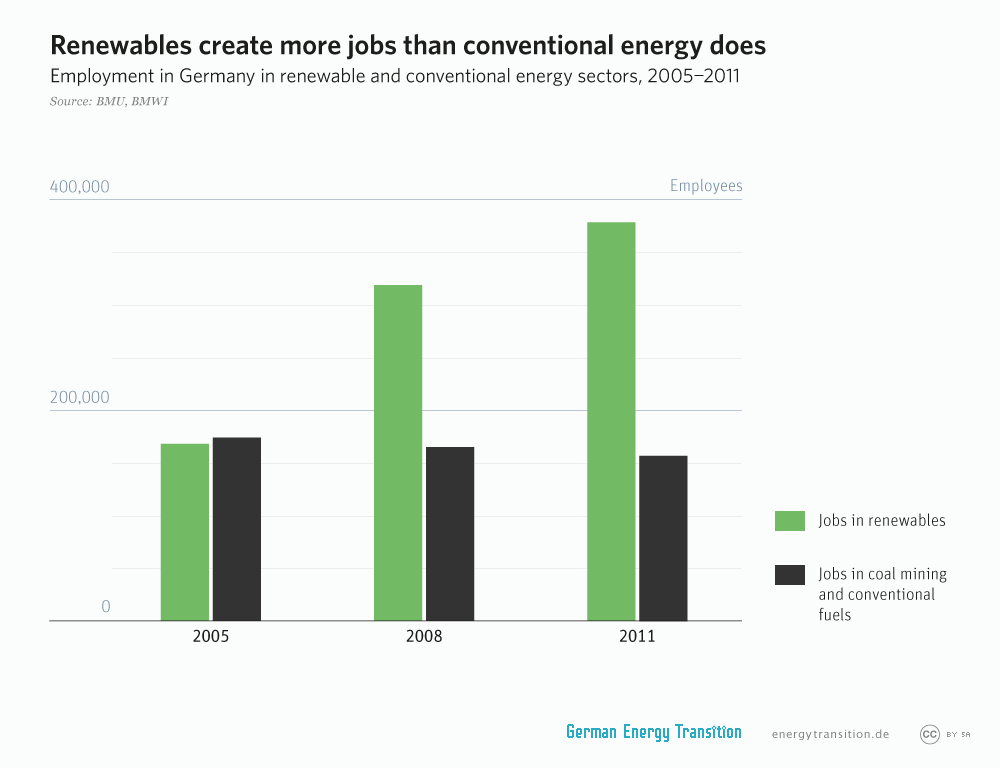Blackshawhead Environmental Action Team’s Finn Jensen commented on Dodgy nuclear documents, that
“Germany plans a 25% reduction in their electricity demand but the UK plans for 50% increase. If Germany can do UK should be able to do the same.”
Here Finn outlines Germany’s “breathtaking” transition from fossil fuels and nuclear power to renewable energy.
One of the most interesting topics in the current energy debate is Germany’s transition from fossil fuels and nuclear power to renewable energy. The scale and ambition of this project is breath-taking. It is also an inspiration to other countries – showing that even in a country with 80 million inhabitants, facing a costly euro crisis – it is possible to become almost carbon neutral by 2050.
However, it was Germany’s decision to rapidly decommission all its nuclear power stations following the Fukushima nuclear disaster in Japan that hit the news headlines. Doubts were raised whether this decommissioning would result in increased electricity production from coal power stations and/or import of nuclear energy from other countries, mainly France.
 There has been a strong public opposition to nuclear power in Germany since the nuclear accident at Chernobyl in 1986. This opposition increased by six per cent to 71% after the Fukushima disaster. The Green Party won an important regional election – mainly because of its opposition to nuclear energy – which threatened the Merkel federal government.
There has been a strong public opposition to nuclear power in Germany since the nuclear accident at Chernobyl in 1986. This opposition increased by six per cent to 71% after the Fukushima disaster. The Green Party won an important regional election – mainly because of its opposition to nuclear energy – which threatened the Merkel federal government.
Germany has not been alone in facing these anti-nuclear sentiments. In Denmark a broad campaign with trade union support managed to stop all the main parties and industry’s plan for nuclear energy. Denmark now has a goal – along with all the other Scandinavian countries – of 100% renewable energy by 2050.
In Italy a referendum on nuclear energy had 94% voting against the Berlusconi government’s attempts to have nuclear power. Switzerland has decided to become nuclear-free by 2034. Austria has always been nuclear-free and has stopped power companies from importing nuclear generated electricity from 2015. Belgium decided to start its nuclear phase-out in 2015.
Germany has set a target of 40% of its electricity to come from renewable energy by 2020 and 80% by 2050. This rapid expansion has already had some amazing results. Renewable energy grew from 6% to 25% in just ten years and the target of 40% is likely to be met according to Germany’s official National Renewable Energy Plan (NREAP).
A 2011 survey showed that
“65% of Germans support renewables in general, with 76% supporting solar, 60% supporting wind power, and 51% supporting biomass. In contrast, only 3% supported nuclear, 9% coal, and 22% natural gas.”
(Clean Slate, no 87, produced by Centre for Alternative Technology).
The German energy transition is not only about increasing renewable energy. It also includes:
- Maximizing existing storage options and rolling out innovative new battery technologies
- Relying increasingly on flexible power plants, such as biomass, biogas, and natural gas, that can more readily balance intermittent wind and solar generation
- Strengthening and expanding existing electricity grid infrastructure, including the construction of transmission super-highways that can move electricity between the north of the country, where wind is plentiful, and the south, where the solar resource is stronger.
- Widespread introduction of smart meters and smart grid technologies
- Accelerated energy efficiency deployment
Germany can manage without its 17 remaining nuclear power station – in fact Germany is a net exporter of energy according to the Heinrich Boell Foundation. Germany will also be able to meet its CO2 reduction targets of 40% by 2020 and 80% by 2050.
How expensive is this transition?
“A shift to a renewable energy powered economy comes with costs. However, this price tag is modest in comparison to the heavy burden that nuclear brings. Over the last 40 years, the German nuclear industry has been pampered with more than 200 billion Euros in subsidies. In comparison, renewable energy technologies have been incentivized by about 4.8 billion Euros in 2010. By replacing fossil fuel imports and avoiding health costs, renewables already pay off today.” (Arne Jungjohann, Heinrich Boell Foundation).
One has to ask: if Germany can do it why can’t the UK?


